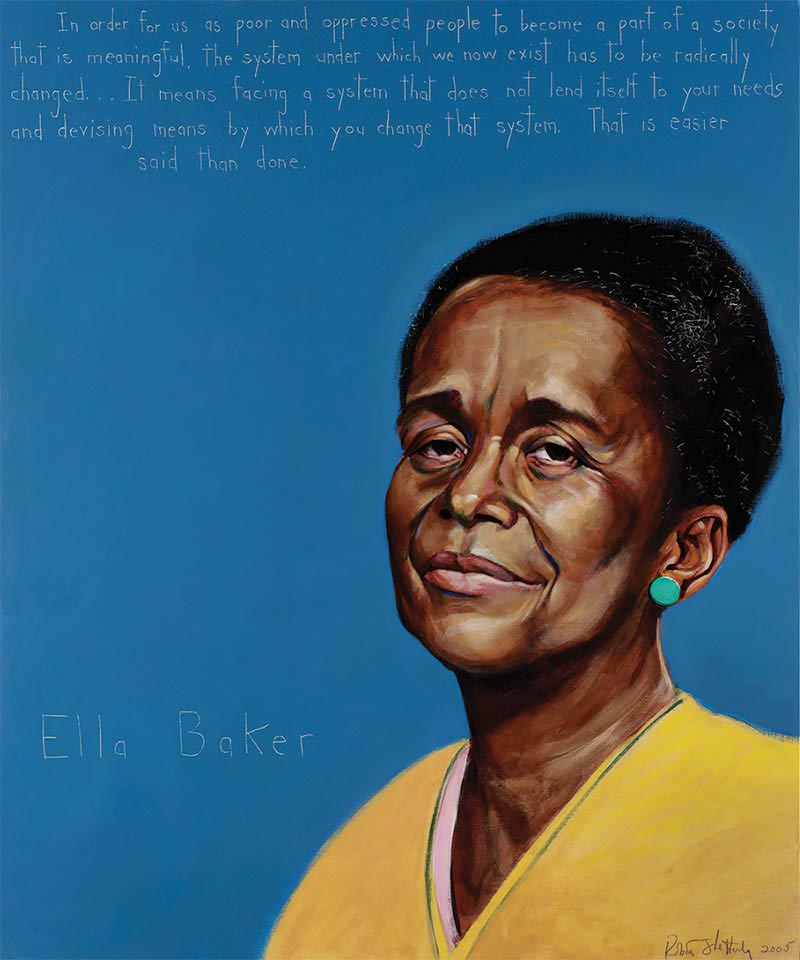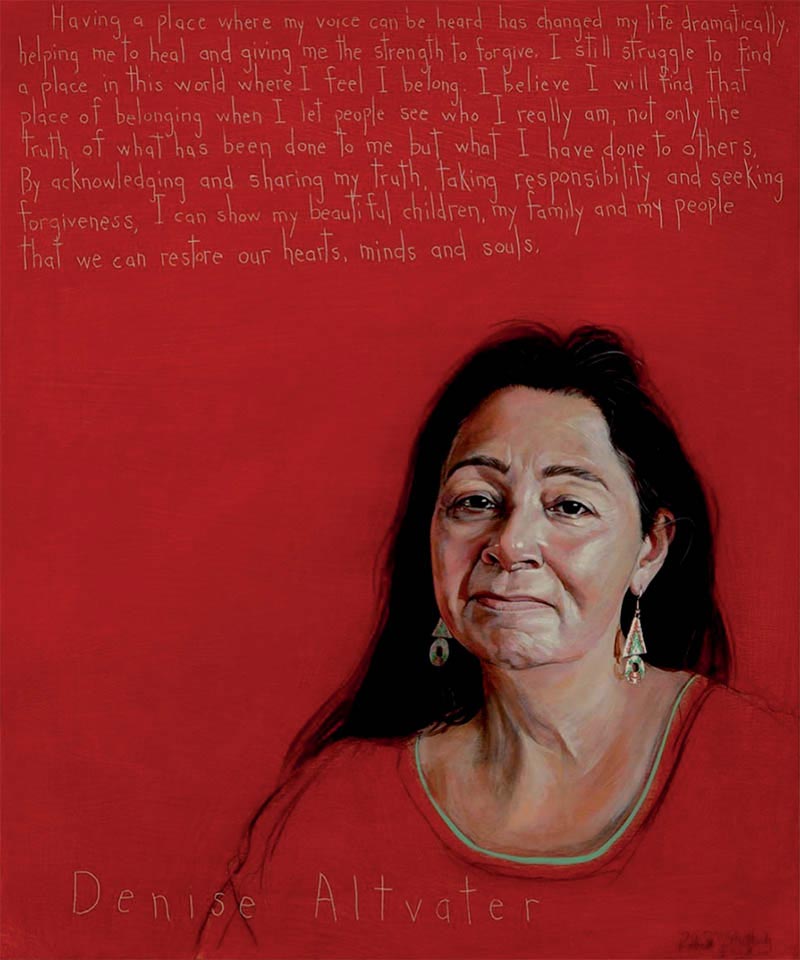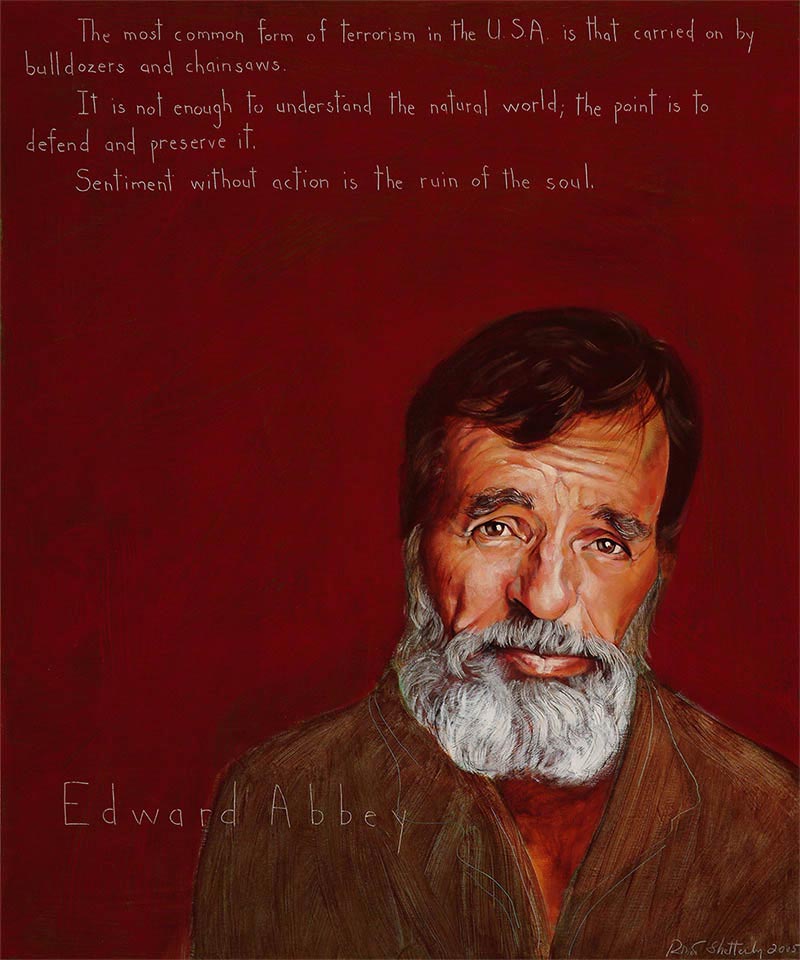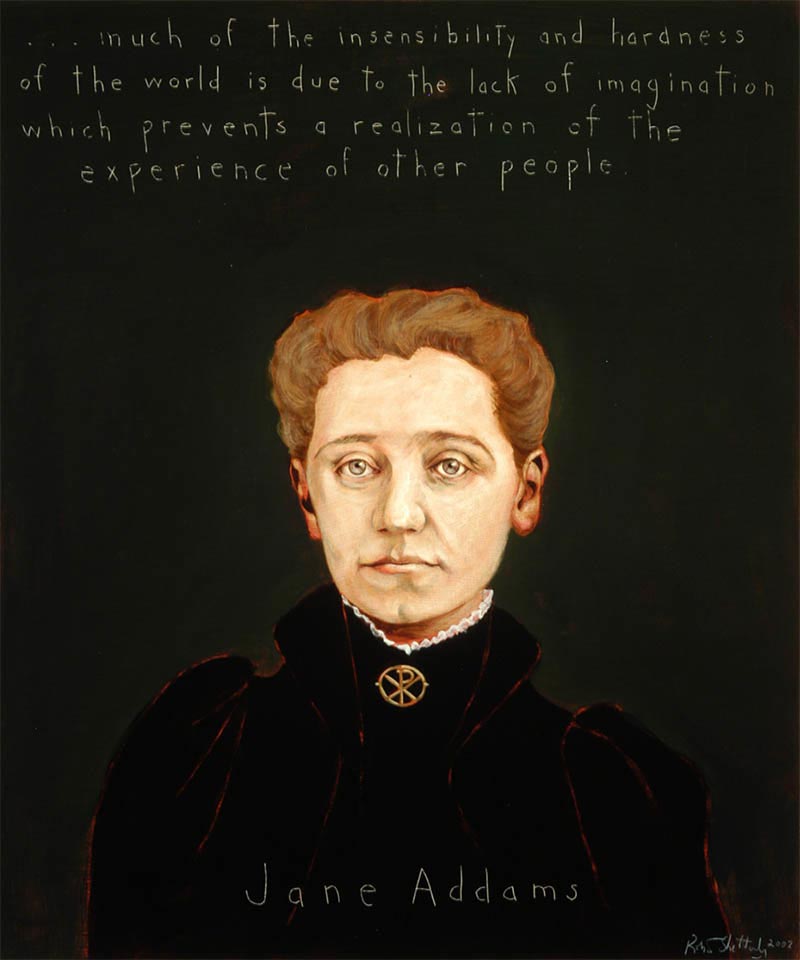
Ella Baker
Civil Rights Organizer : 1903 – 1986
“In order for us as poor and oppressed people to become a part of a society that is meaningful, the system under which we now exist has to be radically changed. … It means facing a system that does not lend itself to your needs and devising means by which you can change that system. That is easier said than done.”
Biography
The granddaughter of a slave who was beaten for refusing to marry a man her master chose for her, Ella Baker dedicated her life to working behind the scenes of the civil rights movement. If she could have changed anything about the movement, it might have been to persuade the men leading it that they, too, should do more work behind the scenes. Baker was a staunch believer in helping ordinary people to work together and lead themselves, and she objected to centralized authority. In her worldview, “strong people don’t need strong leaders.”
In 1927, after graduating from Shaw University in Raleigh, North Carolina, Baker moved to Harlem and began her long career of organizing, helping to establish consumer cooperatives during the Depression. She joined the NAACP’s staff in 1938 and spent half of each year traveling in the South to build support for local branches, which would become the foundation of the civil rights movement. In 1946, she reduced her NAACP responsibilities to work on integrating New York City’s public schools.
Baker was one of the visionaries who created the Southern Christian Leadership Conference (SCLC) in 1957, and she recruited the Reverend Martin Luther King, Jr., to serve in the organization. She served two terms as the SCLC’s acting executive director but clashed with King, feeling that he controlled too much and empowered others too little.
In 1960, when four black students in Greensboro, North Carolina, were refused service at a Woolworth’s lunch counter, setting off sympathetic sit-ins across the country, Baker seized the day. Starting with student activists at her alma mater, she was instrumental in the founding of the nationwide Student Nonviolent Coordinating Committee (SNCC), which gave young blacks, including women and the poor, a major role in the civil rights movement.
Baker returned to New York City in 1964 and worked for human rights until her death in 1986. Her words live on in “Ella’s Song,” sung by Sweet Honey in the Rock: “We who believe in freedom cannot rest.”
Related Portraits
Programs
Americans Who Tell the Truth (AWTT) offers a variety of ways to engage with its portraits and portrait subjects. Host an exhibit, use our free lesson plans and educational programs, or engage with a member of the AWTT team or portrait subjects.

Education
AWTT has educational materials and lesson plans that ask students to grapple with truth, justice, and freedom.

Exhibits & Community Engagement
AWTT encourages community engagement programs and exhibits accompanied by public events that stimulate dialogue around citizenship, education, and activism.



